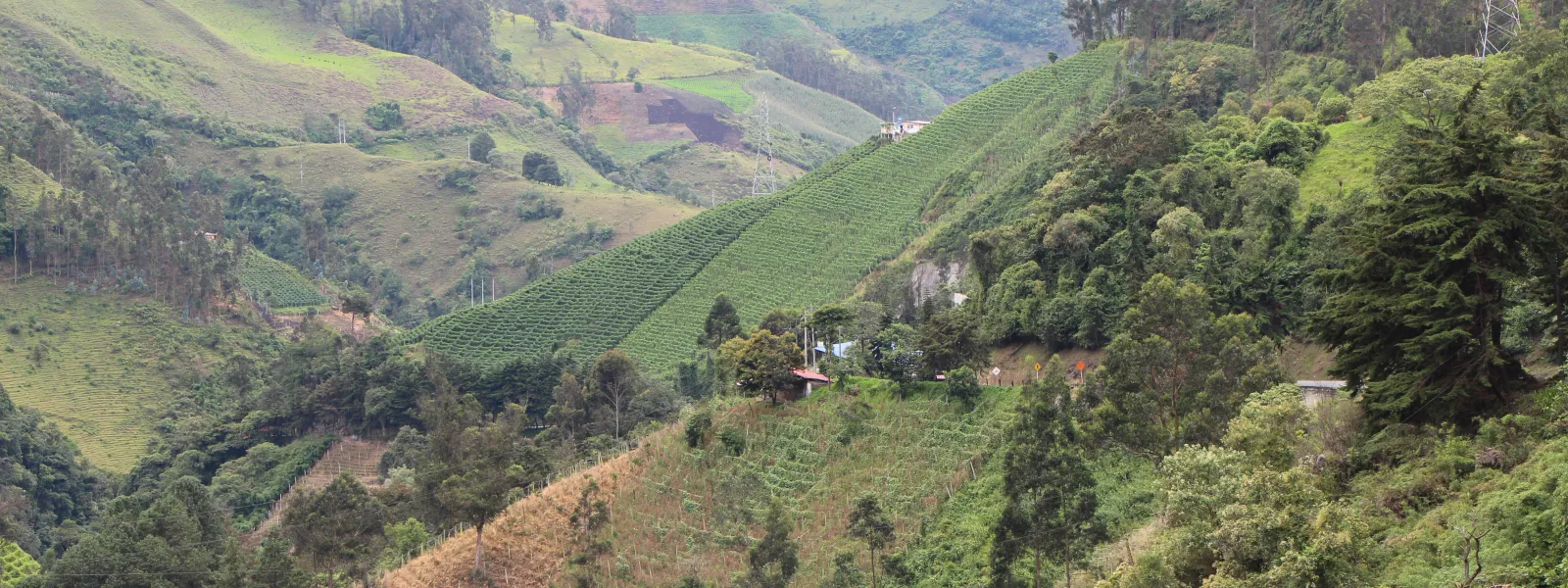
Project
Photo: Andrés Ángel / AIDASupporting Cajamarca’s fight to defend its territory from mining
Cajamarca is a town in the mountains of central Colombia, often referred to as "Colombia’s pantry” due to its great agricultural production. In addition to fertile lands, fed by rivers and 161 freshwater springs, the municipality features panoramic views of gorges and cloud forests. The main economic activities of its population—agriculture and tourism—depend on the health of these natural environments.
The fertile lands of Cajamarca are also rich in minerals, for which AngloGold Ashanti has descended on the region. The international mining conglomerate seeks to develop one of the world’s largest open-pit gold mines in the area. Open-pit mining is particularly damaging to the environment as extracting the metal involves razing green areas and generating huge amounts of potentially toxic waste
The project, appropriately named La Colosa, would be the second largest of its kind in Latin America and the first open-pit gold mine in Colombia. The toxic elements that an operation of that magnitude would leave behind could contaminate the soil, air, rivers and groundwater.
In addition, storms, earthquakes, or simple design errors could easily cause the dams storing the toxic mining waste to rupture. The collapse of similar tailings dams in Peru and Brazil in recent years has caused catastrophic social and environmental consequences.
On March 26, 2017, in a popular referendum, 98 percent of the voters of Cajamarca said “No” to mining in their territory, effectively rejecting the La Colosa project. AIDA is proud to have contributed to that initiative. But even with this promising citizen-led victory, much work remains.
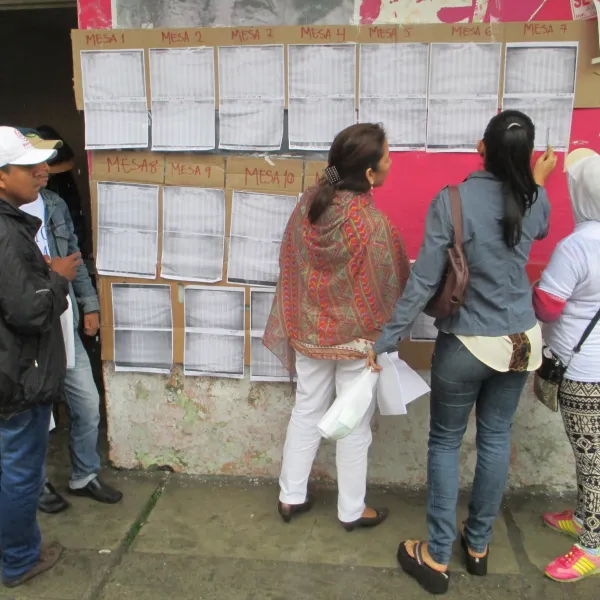
Related projects
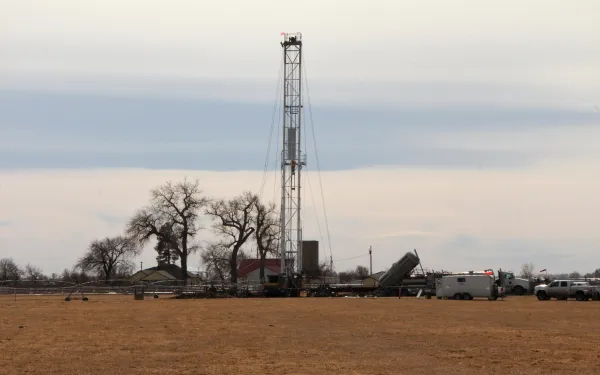
The Final Frontier: Public policies, impacts and resistance to fracking in Latin America
Heavily promoted by the United States, the exploitation of unconventional hydrocarbons through fracking has sought to expand into nations throughout the Americas. It has done so despite the fact that none of those governments have comprehensive knowledge of its risks, the serious and irreversible damage it does to human and environmental health, or how to prevent and mitigate those risks. That’s why the Latin American Alliance On Fracking (ALFF) published this report—to contribute to the debate, and spread awareness of the impacts of this controversial technique. Throughout these pages we address the situation of fracking in six countries: Argentina, Bolivia, Brazil, Chile, Colombia and Mexico. Each case analyzes: the context of energy development in the country; public policies to promote and regulate fracking; the social, environmental and economic impacts of fracking on people, their human rights, and their land; and the advocacy, mobilization and resistance strategies deployed in each country. The report concludes with a summary of conclusions and recommendations in light of the analysis of and reflection on the different cases studied. As part of ALFF, it is our goal to feed the discussion of an urgent change to the energy model of our region, to arrive at one that is sustainable and socially just. We believe that the forms of production, distribution and consumption of energy promote in our region reflect the unjust and deeply unequal system of social relations in the region. This is the social, political and economic reality that the promotion of fracking reinforces. This is what we want to change. Download the report (in Spanish)
Read more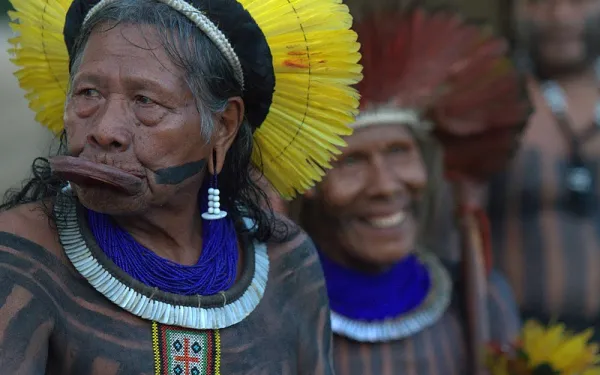
Belo Monte: Fueling Our Fight for Justice
By María José Veramendi Villa Even as the turbines of the Belo Monte Dam have begun turning, the fight for justice continues. The ongoing operation of the world’s third largest dam—corrupt and careless as it is—cannot stop us. In fact, each new allegation of corruption and abuse only fuels our desire for justice for those who have been affected by the dam. And our most important battle is now strongly underway: our case before the Inter-American Commission on Human Rights, which opened for processing at the close of last year. In it, we’re working to hold Brazil accountable for the countless human rights violations that have been committed in the name of the Belo Monte dam: the absence of consultation with and free, prior and informed consent of indigenous communities; the lack of adequate assessment of environmental and social impacts; forced displacement; and severe violations to the rights of indigenous peoples, riverine communities and residents of Altamira. We’re in the process of getting the case admitted before the Commission, so they can establish—as an independent, international body—if these violations occurred and whether the State must respond for them. As part of the process, Brazil had to respond to our allegations before the Commission. We received their response on August 9 and have just submitted our legal submission to counter their claims. We need to ensure Commission understands the importance of their role in investigating the human rights abuses that have been suffered due to Belo Monte. Even as I write this, the State and dam operators continue to blatantly disregard the human rights of the people of the Xingu River basin, living in the dam’s shadow. On September 1, for instance, the dam’s operating license was suspended yet again because sanitation systems in the city of Altamira—a legal obligation operators were required to meet long ago—were never installed. Wastewater still floods the streets of Altamira, and threatens to turn Belo Monte’s reservoir into a stagnant pool of sewage. Unfortunately, as with many legal decisions attempting to protect the rights of those affected, the suspension was overturned a few weeks later. It’s clear the forces behind Belo Monte have no respect for the environment in which they’re working, and even less for the local people who depend upon the river and forests for their survival. Many of the people we represent live in the neighborhoods of Altamira, and are exposed to raw sewage. Those who live outside the city have been displaced from their land, cut off from their primary water source, or have had their way of life destroyed. We must ensure the Brazilian State is held accountable for the immense environmental and social damage the dam has caused. Rest assured, we won’t stop until we achieve justice for the people of the Xingú.
Read more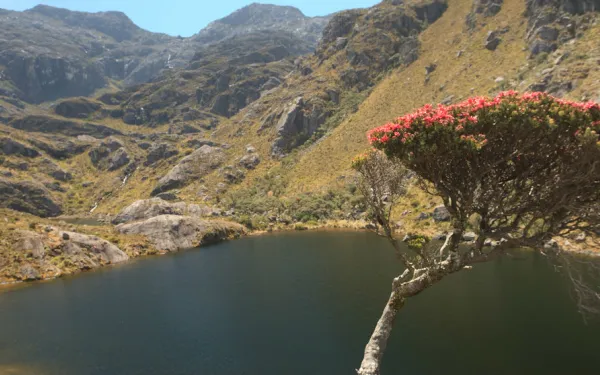
Civil society urges World Bank to withdraw funding from Colombian mining project
Organizations argue that the International Finance Corporation invested in a gold mine without taking into account potential environmental impacts, thereby failing to comply with its own investment standards. The proposed mine threatens Colombia’s Santurbán Páramo, a high-Andean ecosystem that provides water to millions of people. Washington, DC. A coalition of civil society organizations met at World Bank headquarters yesterday to demand that the International Finance Corporation (IFC), a member of the World Bank Group, withdraw its investment in the Angostura mine. The proposed gold-mining project would be located in Colombia’s Santurbán Páramo, a high-Andean ecosystem that supplies drinking water to more than two million people. The organizations also delivered a petition, signed by thousands of people from throughout the Americas, calling on IFC to withdraw its investment immediately. To present their demand, the organizations met with representatives of the IFC. They are also meeting with members of Congress and representatives of the US Department of State to discuss the situation in the Santurbán páramo and the risks its defenders face. The Committee for the Defense of Water and Páramo of Santurbán led the coalition, with support from the Center for International Environmental Law (CIEL), the Interamerican Association of Environmental Defense (AIDA), the Center for Research on Multinational Corporations (SOMO), and Mining Watch Canada. The demand presented yesterday tops off an important year in the fight to defend Santurbán. In March, the Canadian company developing the mine, Eco Oro, announced its intention to file an international arbitration suit against the Colombian government. In February Colombia’s Constitutional Court issued a ruling that bans all oil, mining, and gas operations in the country’s páramos. In August, an independent investigation undertaken by IFC’s internal watchdog, the Compliance Advisor Ombudsman, found that the investment in Angostura did not take into account the project’s potential environmental impacts, thus failing to comply with IFC’s own investment standards. The investigation was triggered by a complaint filed by the Committee and supported by the international organizations.
Read more